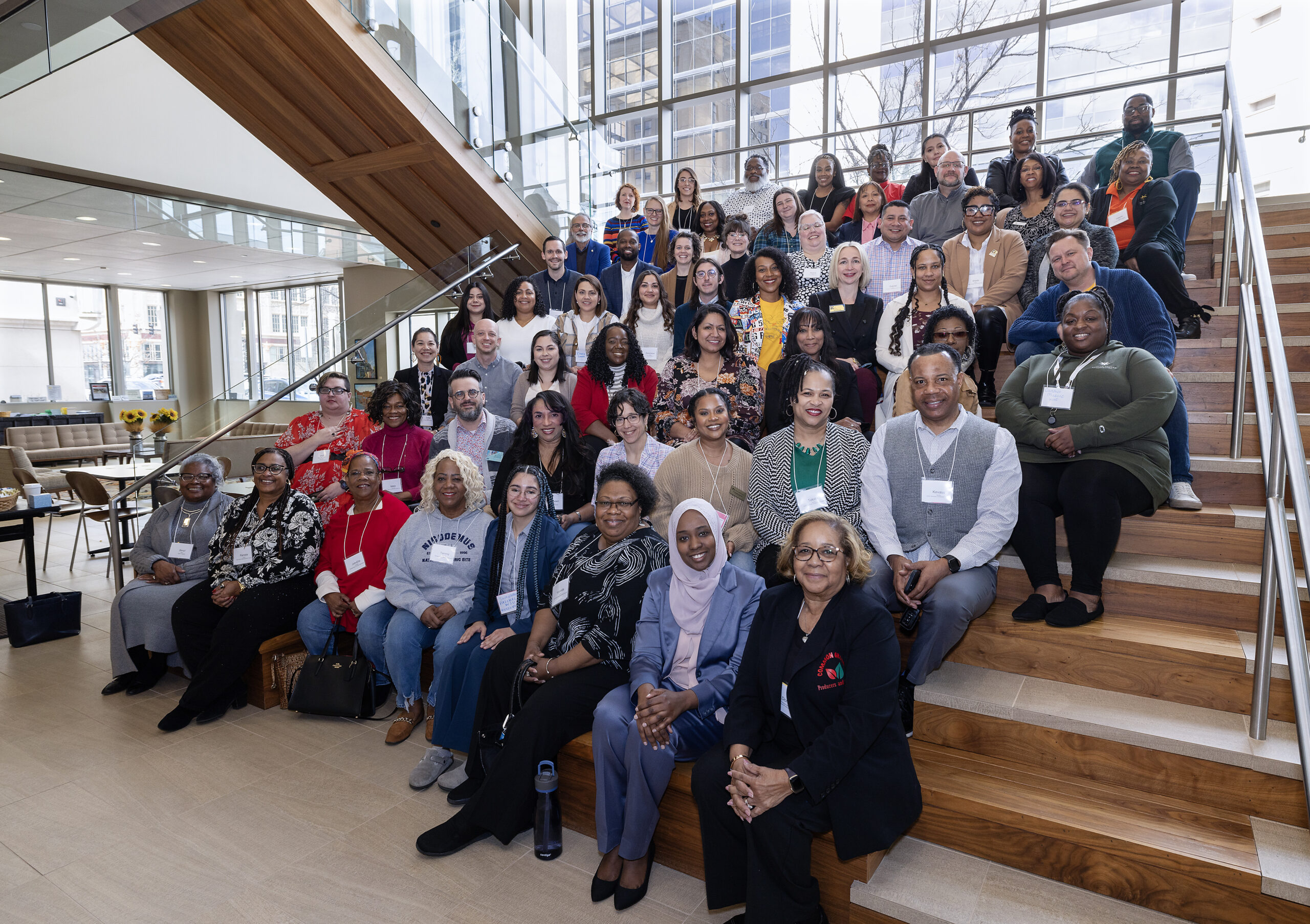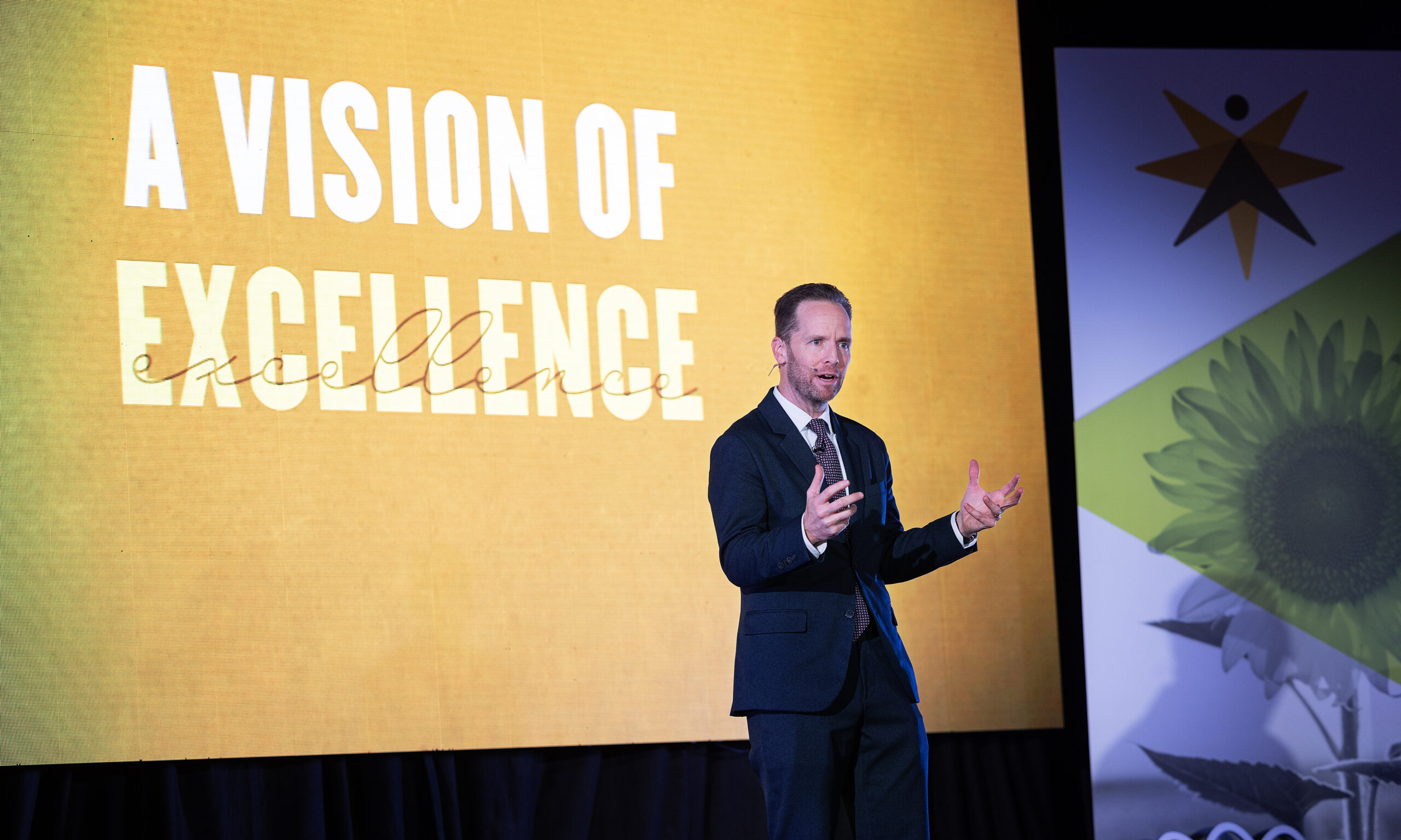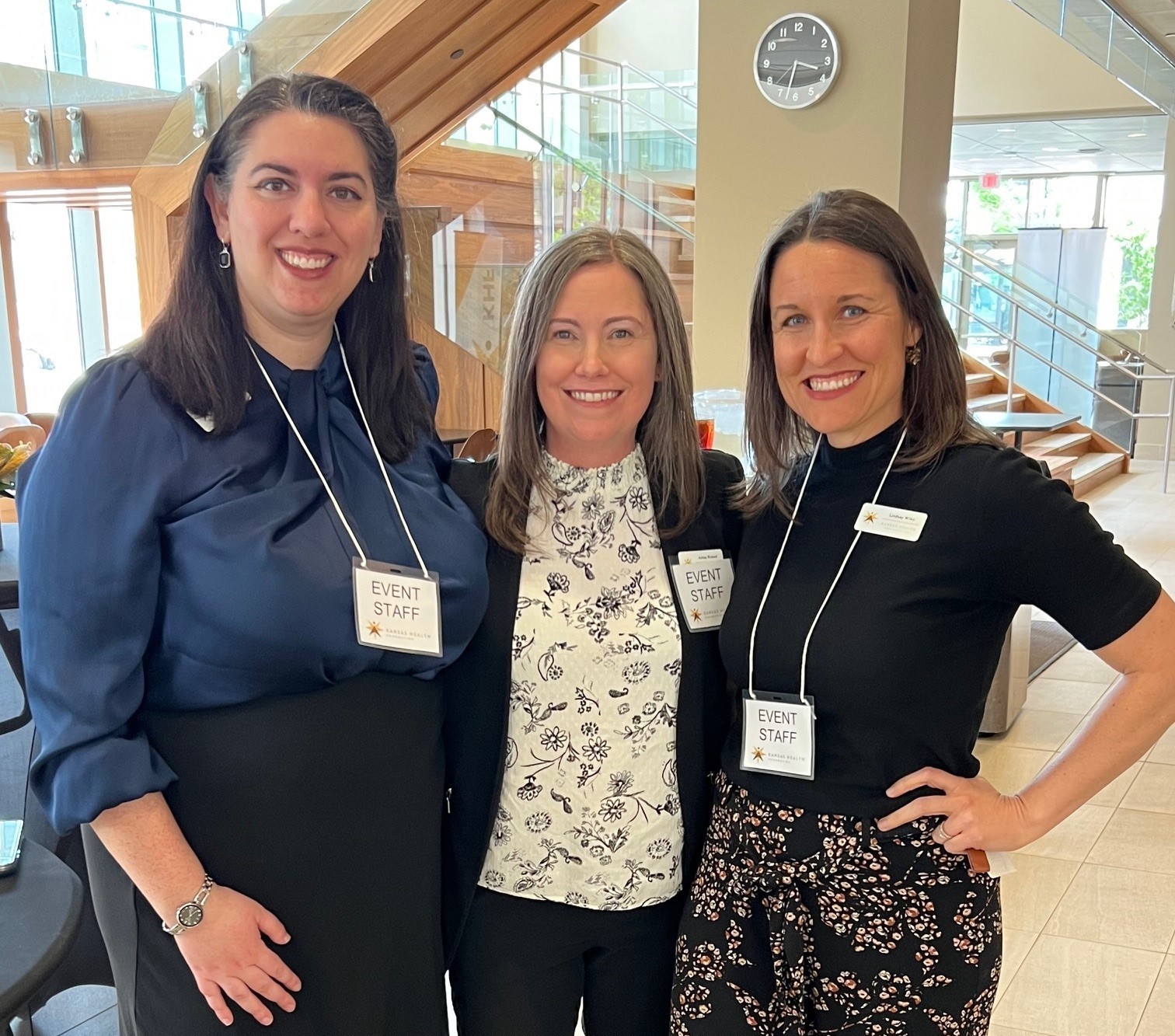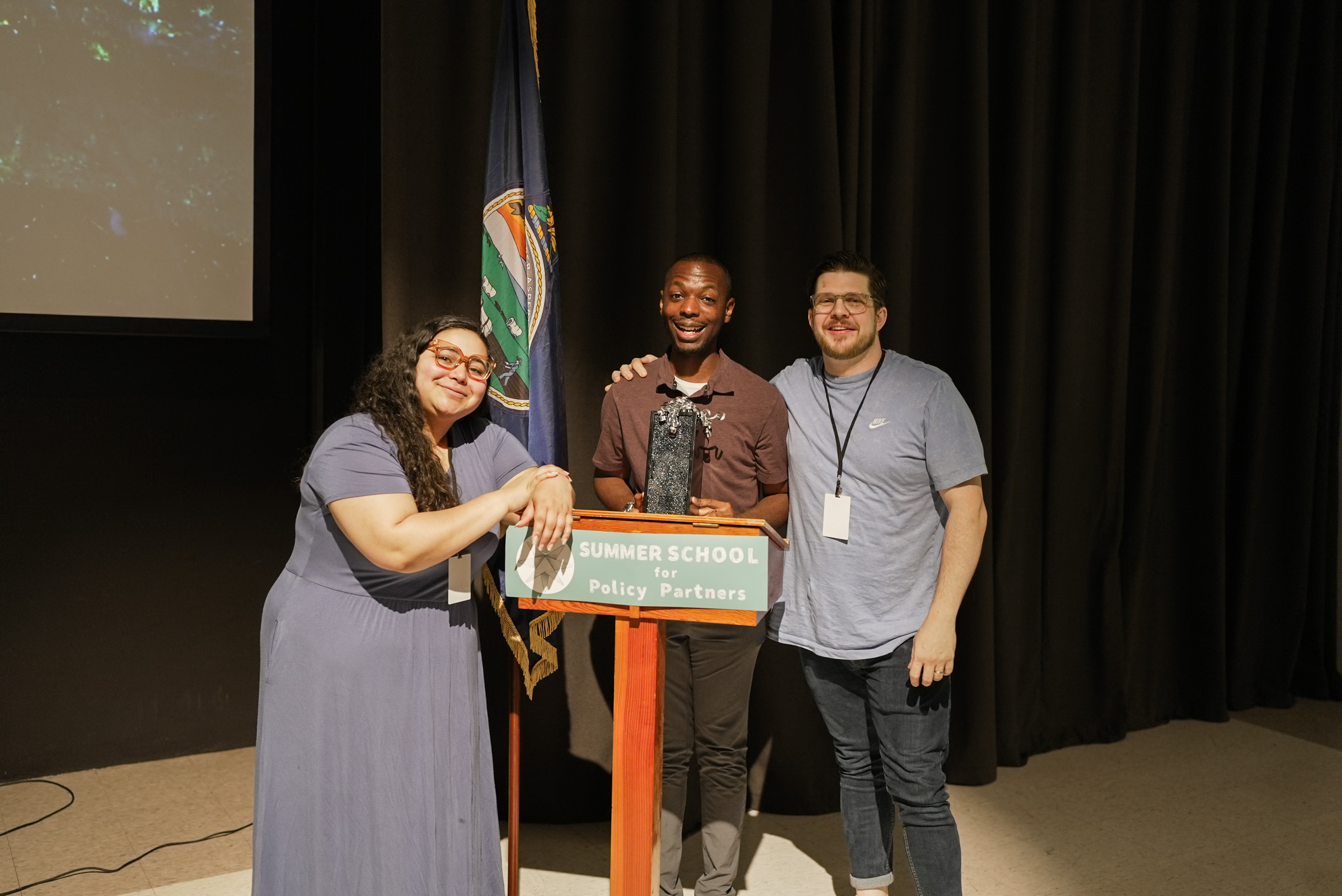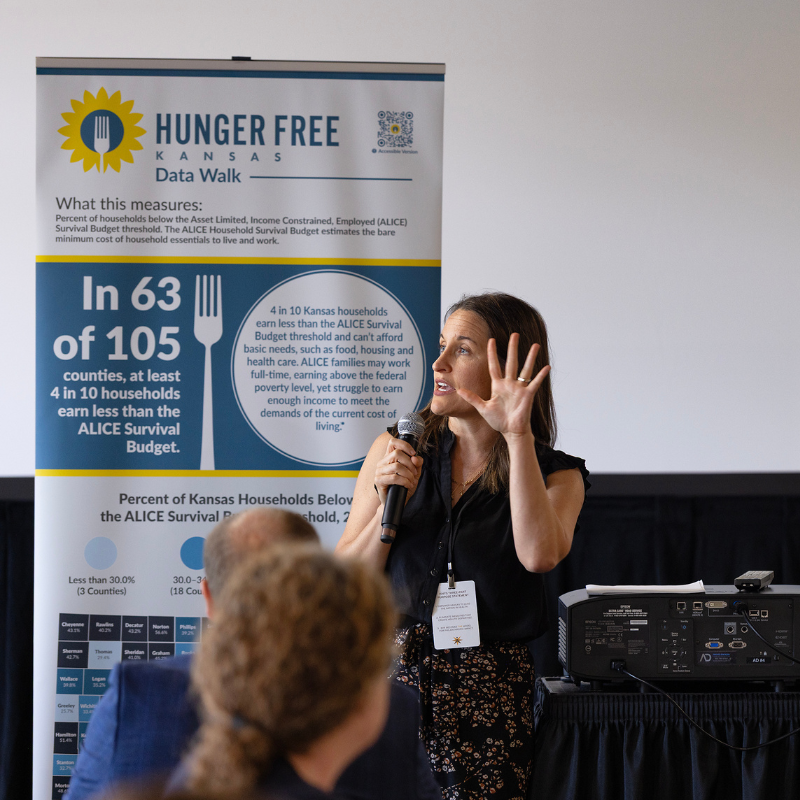America’s Health Rankings is our North Star when we select our major health challenges as a foundation. Issues like access to affordable housing, healthy food, income, education and more drastically affect health outcomes. These behavioral, economic, environmental and social determinants of health represent really big, daunting challenges that don’t have simple fixes.
These challenges require multi-sector collaboration and new ways of thinking. So, when we approach a major health challenge, our aim is to dig deep. We intentionally focus to establish a foundation on which long-term progress can be made.
Our Hypothesis for Progress outlines this strategy with five key elements:
#1 A Well-Resourced Statewide Organization
Every challenge deserves someone waking up every day thinking about this specific work. A well-resourced statewide organization has the capacity and skills to communicate the issue, engage partners, support local coalitions and track metrics.
#2 Well-Resourced Local Coalitions
Local coalitions know their communities better than anyone. Working at the local level––at a statewide scale––builds buy-in and helps us advocate for policy and system change.
#3 Policy Emphasis
Policy – whether needing to be passed, implemented or repealed – is a key part of the infrastructure necessary to make progress. Efforts must include a focus on policy at all levels of government and across the full political spectrum.
#4 Resources to Innovate
Additional funding is necessary to not only maintain but also to innovate within a statewide organization, so they can run bold, new experiments that make long-term impacts.
#5 Data and Measurement
How do we know if we are making progress, or if the things we’re trying are working? Through shared metrics that help partners align their efforts toward common goals.
This approach combines the power of local communities and voices at a statewide scale, resources for programming and support for policy solutions, as well as measurement and tracking to hold ourselves accountable.
Each of these elements includes work that many organizations across Kansas are well-positioned to support–or are already supporting. And we need as much of the KHF network as possible chipping away at these issues to help us expand the number of people who care and see it as their work.
Our first major health challenge is a case study for this hypothesis.
Hunger Free Kansas
Across Kansas, one in eight people will go to work or school hungry today. That’s why, in 2024, we selected hunger/food insecurity as our first major health challenge.
Thanks to support from multiple partners and collaborators from the public and private sectors, we’ve successfully stood up a statewide organization—Hunger Free Kansas—to drive momentum in combating the issue. Executive Director Erika Debrick Kelly now works across Kansas to identify work being done and where gaps in service or policy might need support.
The Hypothesis for Progress is well set for this major health challenge: a statewide organization working with local coalitions is in place with the funding needed to maintain and innovate on the issue, which is backed by data provided by the Kansas Health Institute.
Hunger Free Kansas now leads the charge, and it’s time for KHF’s next major health challenge.
Upward Mobility
America’s Health Rankings might be our North Star in selecting the issues we focus on, but our partners are the final determining factor. Our partners want the challenges we choose to be data-driven and matter most to the people facing the greatest health disparities (one of the key components of our Three-Part Purpose Statement).
When we surveyed our statewide partner network, economic challenges and upward mobility rose to the top as one of the most important issues impacting the people they serve. And the data agreed.
- Two in five Kansas households struggle to meet the basic cost of living, even when employed.
- The estimated survival budget for a Kansas family of four (two adults and two children in childcare) is $71,892.
- The average job in 80% of Kansas counties pays less than the amount needed to meet the cost of living in that county.
Both the data and our partners told us that a person’s financial situation has an outsized impact on their health. Income affects people’s ability to afford safe housing, buy healthy food, pay for doctors’ appointments and medication, save for retirement and more.
Upward Mobility, our next major health challenge, aims to address these issues to ensure every Kansan has the opportunity to succeed, regardless of their starting point in life. Right now, we’re in the crowdsourcing phase of this challenge. We would like to hear from as many Kansans as possible on this topic and will use what we hear to shape our funding initiatives.
Learn more: Idea Crowdsourcing Upward Mobility with Wish Well
Every step we take, every element we build, is strategic, so that in five to 10 years, we can see measurable progress where efforts continue long after grant dollars are spent.
KHF serves as a catalyst for these major health challenges, bringing focus, funding and structure to the issue. But it is our partners, our network and Kansans themselves who drive meaningful change.



